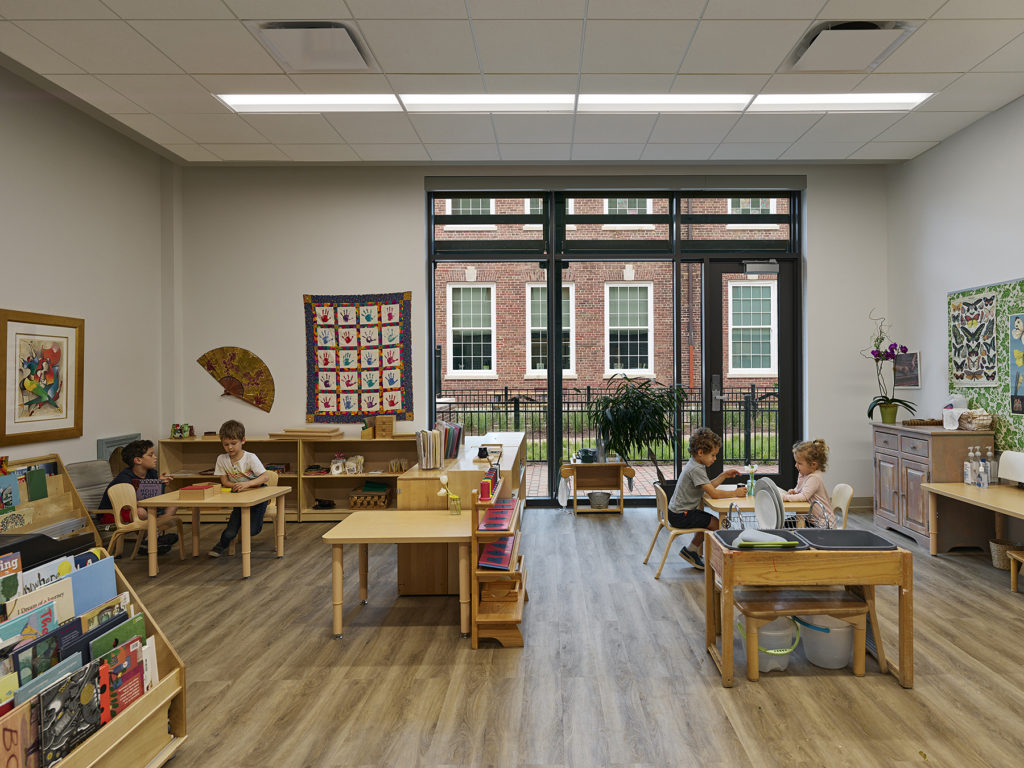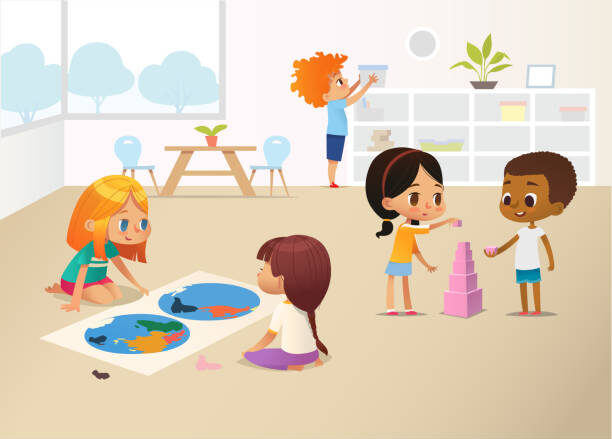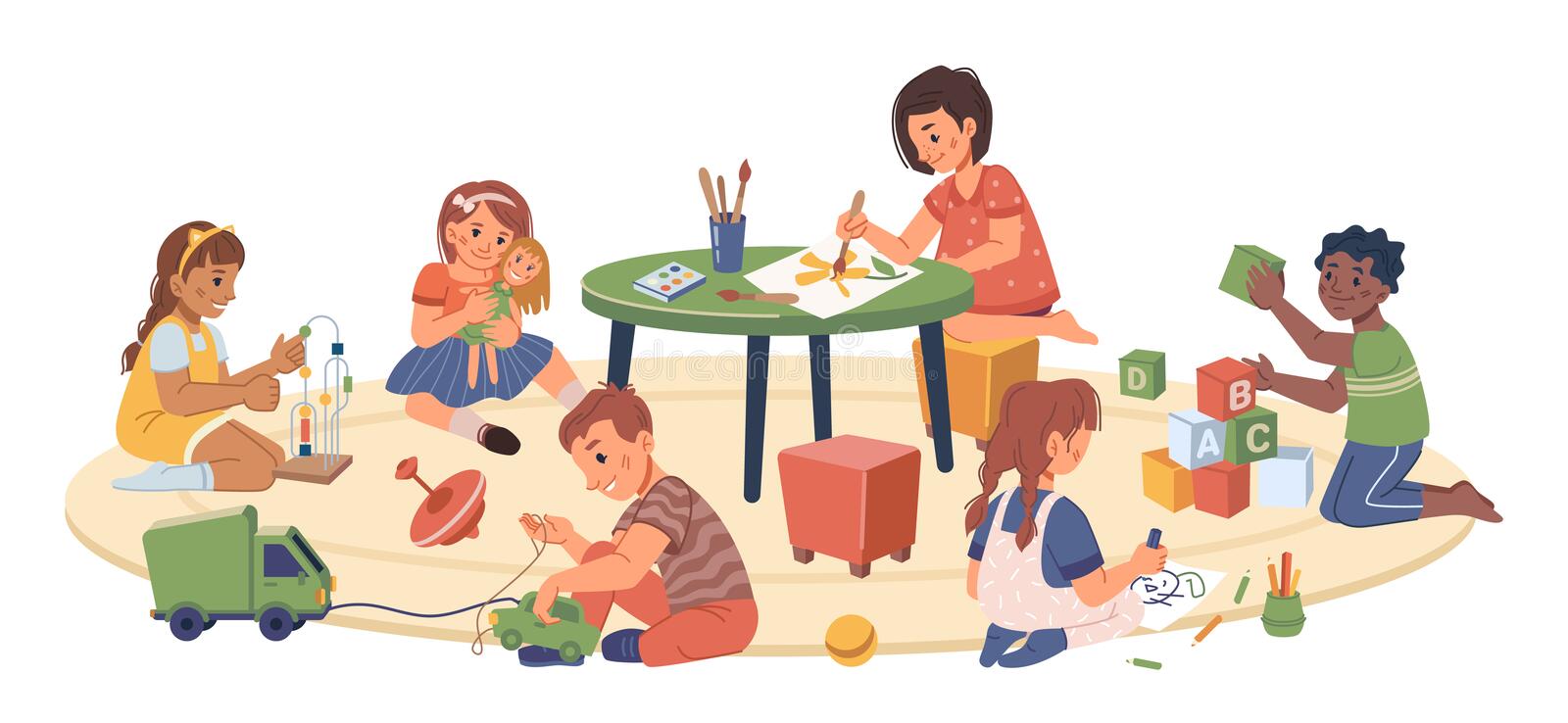Montessori Home
Montessori Parenting: The Revolutionary Approach Every Parent Needs to Know
As a parent, you want to provide the best possible environment for your child to learn and grow. You have read countless books, articles, and blogs on parenting techniques, but have you ever heard of Montessori parenting? This revolutionary approach to parenting has been gaining popularity in recent years and for good reason. Montessori parenting is based on the principles of the Montessori method, a child-centered educational approach developed by Maria Montessori in the early 1900s. In this blog post, we will explore the basics of Montessori parenting and why it is worth considering for your family.
I. Introduction
Montessori parenting is a philosophy that is becoming more and more popular among parents today. Developed by Dr. Maria Montessori in the early 1900s, it is a child-centered approach to parenting that is focused on promoting independence, self-esteem and a love of learning. At its core, Montessori parenting is all about giving children the freedom to explore and learn at their own pace. This can mean giving them space to play and discover on their own, or providing them with the tools and materials they need to explore the world around them.

II. Understanding the Montessori Philosophy
One of the key principles of the Montessori philosophy is the importance of independence. Montessori believed that children should be given the freedom to choose their own activities and work at their own pace. This allows children to develop a sense of independence and self-confidence, which will serve them well throughout their lives. In a Montessori classroom, children are given the opportunity to choose from a variety of materials and activities that are designed to stimulate their senses and foster their natural curiosity.
Another principle of the Montessori philosophy is the importance of order. Montessori believed that children thrive in environments that are organized and structured. In a Montessori classroom, everything has a place, and children are taught to put things back where they belong after they are finished using them. This helps children develop a sense of order and discipline, which is important for their overall development.

Finally, the Montessori approach emphasizes freedom within limits. Children are given the freedom to choose their own activities and work at their own pace, but they are also expected to follow certain guidelines and rules. This helps children develop self-discipline and respect for others. They learn to work independently, but also to collaborate and share with others.
Parents play a crucial role in the Montessori approach. They are encouraged to be actively involved in their child’s education and to support their child’s learning at home. They are also encouraged to observe their child in the classroom and to communicate regularly with their child’s teacher. This helps parents understand their child’s strengths and weaknesses and to support their child’s learning in a way that is consistent with the Montessori philosophy.
III. Incorporating Montessori Principles into Daily Life
Here are some practical ways to incorporate Montessori principles into your daily life at home:
Encourage Independence
One of the most important Montessori principles is to encourage independence in children. By giving children the freedom to make choices and take responsibility for their own actions, they develop a sense of self-confidence and self-reliance. Here are some ways to encourage independence in your child:
1. Let your child choose their own clothes for the day.
2. Allow your child to prepare their own snacks or meals.
3. Set up a low shelf or drawer with toys and materials that your child can access independently.
4. Encourage your child to tidy up after themselves.
By allowing your child to take responsibility for their own actions, they will develop a sense of pride and independence.
Promote Order
Another important Montessori principle is to promote order in the environment. By having a well-organized and structured environment, children are better able to focus on their activities and develop self-discipline. Here are some ways to promote order in your home:
1. Create a designated space for each activity or material.
2. Use low shelves, baskets, or trays to organize toys and materials.
3. Label shelves and drawers with pictures or words to help your child find what they need.
4. Establish a routine for daily activities, such as meals, nap time, and playtime.
By promoting order in your home, your child will develop a sense of structure and organization, which will help them in all areas of their life.

Provide Freedom
Lastly, Montessori principles emphasize the importance of providing freedom for children. By allowing children to explore and discover on their own, they develop a love of learning and a sense of curiosity. Here are some ways to provide freedom for your child:
1. Allow your child to choose their own activities and materials.
2. Provide open-ended materials, such as blocks and art supplies, that can be used in a variety of ways.
3. Let your child explore the outdoors and experience nature.
4. Limit screen time and encourage active play.
By providing freedom for your child, they will develop a love of learning and a sense of curiosity, which will help them in all areas of their life.
Benefits of a Montessori-Inspired Environment at Home
By incorporating Montessori principles into your daily life at home, you will provide your child with a supportive and nurturing environment that will help them develop the skills they need to succeed in life. Here are some of the benefits of a Montessori-inspired environment at home:
1. Improved concentration and focus.
2. Increased independence and self-confidence.
3. Enhanced problem-solving and critical thinking skills.
4. Greater creativity and imagination.
5. Stronger sense of order and organization.
6. Increased love of learning and curiosity.
By providing your child with a Montessori-inspired environment at home, you will help them develop the skills and abilities they need to succeed in life.
IV. Montessori Parenting Tools and Techniques
Montessori parenting is a child-centered approach that emphasizes independence, freedom within limits, and respect for a child’s natural development. Montessori parenting tools and techniques are designed to help children learn through a hands-on, self-directed approach and foster creativity, curiosity, and a love of learning. One of the key tools used in Montessori parenting is the use of learning materials. Montessori materials are simple, beautiful, and designed to be self-correcting, allowing children to learn through trial and error. These materials are specifically designed to meet the developmental needs of children and to foster their natural curiosity and desire to learn.
For example, the Montessori method uses a “sensorial” approach to education, which means that children learn through their senses. This approach is especially important for young children, who are still developing their cognitive and sensory abilities. Montessori sensorial materials, such as geometric solids, color tablets, and sound cylinders, provide children with a hands-on, multi-sensory experience that helps them understand and categorize the world around them.

Another important Montessori parenting tool is the use of child-led activities. Montessori activities are designed to be open-ended and allow children to choose their own activities based on their interests and abilities. This approach fosters independence and self-confidence, while also allowing children to develop a love of learning.
For example, a Montessori activity might involve setting up a “practical life” station in your home, where your child can practice skills like pouring, spooning, and folding. These activities are designed to be simple and easy for children to complete on their own, and they help children develop important life skills and fine motor control.
So how can you implement these Montessori parenting tools and techniques in your daily life? One approach is to create a Montessori-inspired learning environment in your home. This might involve setting up a designated play area with Montessori materials, creating a daily routine that includes child-led activities, and encouraging independent play and exploration.
The benefits of using Montessori parenting tools and techniques with your child are numerous. Research has shown that children who are raised in a Montessori environment tend to be more self-confident, independent, and academically successful. By fostering a love of learning and independence, Montessori parenting tools and techniques can help your child reach their full potential and develop into a confident, capable, and happy adult.
V. Challenges and Solutions
Challenge #1: Adapting to Your Child’s Needs
One of the key principles of Montessori parenting is to follow your child’s lead, meaning you should adapt to their needs rather than impose your own ideas on them. This can be difficult for parents who are used to having control over their child’s life. It requires a shift in mindset from being in charge to being a facilitator of your child’s learning and growth.
Solution: Take the time to observe your child and understand their needs. This means paying attention to their interests, strengths, and weaknesses. It also means giving them the space to explore, make mistakes, and learn from their experiences. By adapting to your child’s needs, you can help them develop a sense of independence and self-motivation.
Challenge #2: Adjusting Your Expectations
Another challenge parents may face when implementing Montessori parenting is adjusting their expectations. Montessori parenting emphasizes letting children learn at their own pace and in their own way, which can be different from traditional parenting methods that focus on achievement and success.
Solution: Allow your child to set their own pace and celebrate their individual achievements. It’s important to remember that every child develops at their own rate and in their own way. By adjusting your expectations, you can help your child develop a strong sense of self-esteem and a love of learning.
Challenge #3: Providing an Environment for Learning
Montessori parenting emphasizes the importance of providing an environment that is conducive to learning. This includes creating a space that is safe, orderly, and stimulating for your child.
Solution: Take the time to create a learning environment that is tailored to your child’s needs. This may involve setting up a Montessori-inspired playroom, providing open-ended toys and materials, and creating a routine that allows for plenty of unstructured playtimes. By providing an environment that is conducive to learning, you can help your child develop creativity, problem-solving skills, and independence.

V. In conclusion
Montessori parenting is a powerful approach to learning that can help children develop the skills, knowledge, and confidence they need to succeed in life. By creating a supportive environment that encourages exploration, discovery, and self-discipline, you can help your child reach their full potential and become a lifelong learner. So why not give Montessori parenting a try with your own children today? You may be surprised by the amazing results!
>> Read more: Tips on How to Become A Montessori Parent
